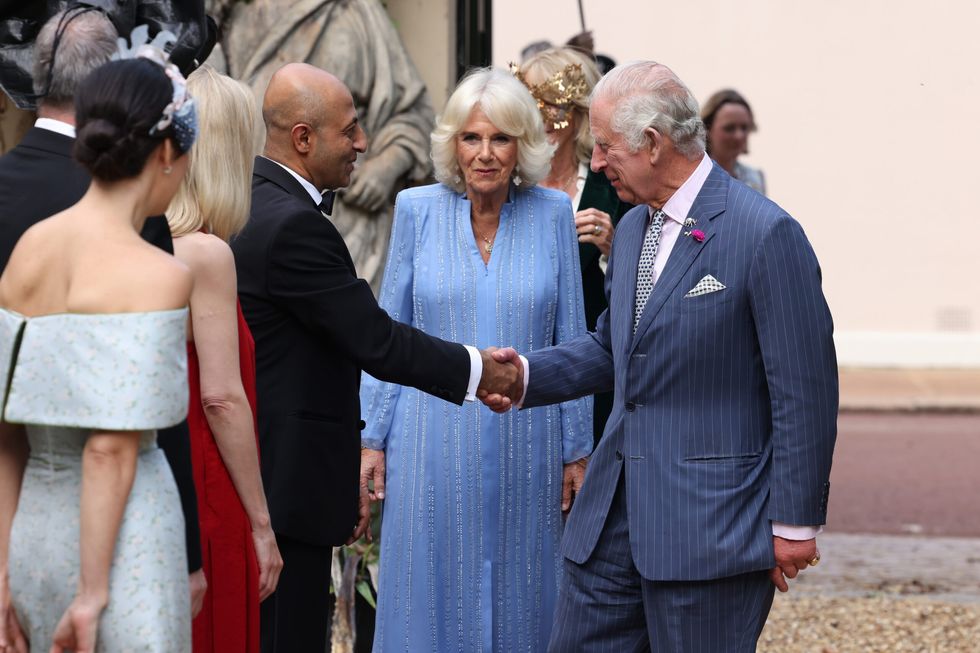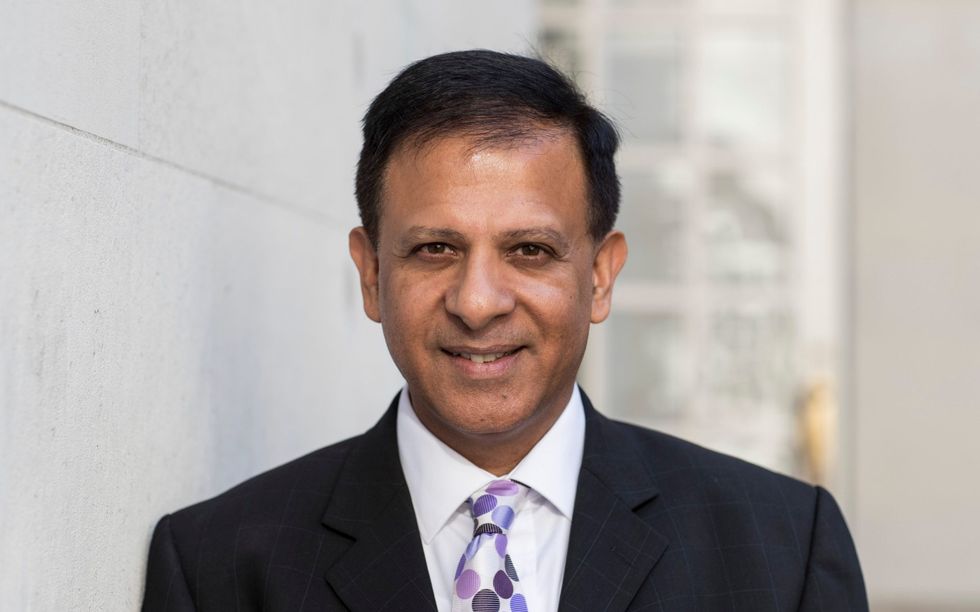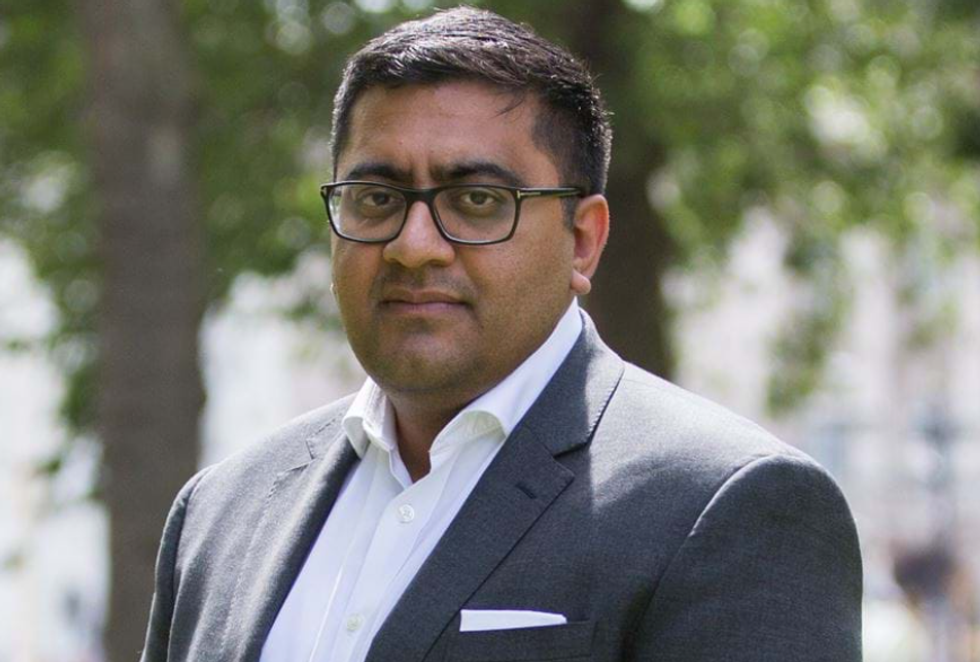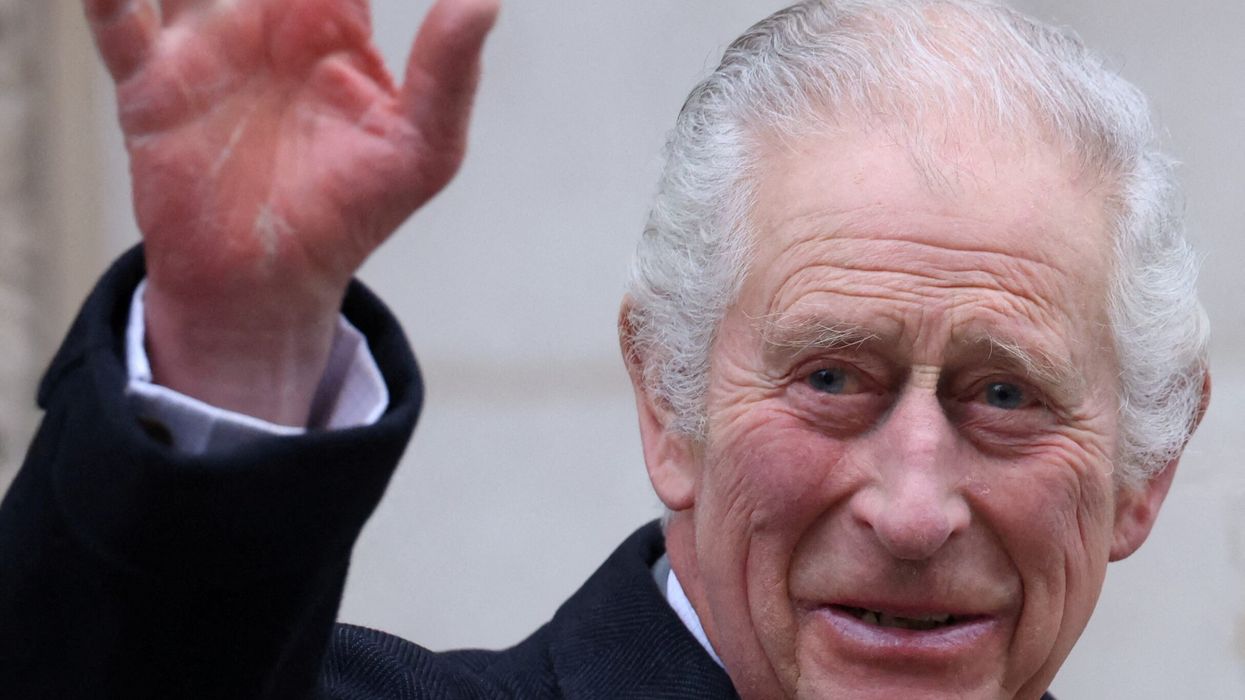THE British Asian community, which has long been supported by King Charles from the days he was a young Prince of Wales, is now rallying round the 75-year old monarch following his cancer diagnosis on Monday (5).
Since the King is also head of the Commonwealth, just as Queen Elizabeth had been for her entire 70-year rule, the Indian prime minister, Narendra Modi, sent him an encouraging message on behalf of 1.4 billion Indians.
“I join the people of India in wishing speedy recovery and good health to His Majesty King Charles III,” Modi said on X.
Lord Jitesh Gadhia, who is close to the King, told Eastern Eye: “As Prince of Wales, the King founded the British Asian Trust, which I am honoured to chair.
“I have therefore witnessed first hand his passion for, and commitment to, the development of South Asia and engagement with the diaspora communities in the UK.
“His Majesty has championed many causes and global relationships – often well ahead of his time. Among them is a deep and abiding connection with the countries of the Indian subcontinent.
“For example, he first visited India in 1975 and has since made nine official trips to the country and has also visited Pakistan, Bangladesh, Sri Lanka and Nepal.”
Gadhia said: “We have been inundated with messages of support and solidarity with His Majesty and wish him a full and speedy recovery.”

During the King’s recent procedure for an enlarged prostate, believed to have been carried out by the Serjeant-Surgeon Ranan Dasgupta at the London Clinic, “a separate issue of concern was noted”, Buckingham Palace said.
“Subsequent diagnostic tests have identified a form of cancer,” it added, but did not identify the type of cancer. King Charles will stay at Clarence House with Queen Camilla and be treated as an “outpatient”.
Buckingham Palace added on Monday (5): “His Majesty has today commenced a schedule of regular treatments, during which time he has been advised by doctors to postpone public-facing duties. Throughout this period, His Majesty will continue to undertake State business and official paperwork as usual.
“The King is grateful to his medical team for their swift intervention, which was made possible thanks to his recent hospital procedure. He remains wholly positive about his treatment and looks forward to returning to full public duty as soon as possible.”
The statement added: “His Majesty has chosen to share his diagnosis to prevent speculation and in the hope it may assist public understanding for all those around the world who are affected by cancer.”
Prime minister Rishi Sunak provided some reassurance by revealing: “Obviously, like everyone else, (I am) shocked and sad, and just all our thoughts are with him and his family. Thankfully, this has been caught early.”
The prime minister, who has a weekly audience with the King, said everyone will be hoping the monarch “gets the treatment that he needs and makes a full recovery. That’s what we’re all hoping and praying for, and I’m of course in regular contact with him and will continue to communicate with him as normal.”
He pointed out: “Many families around the country listening to this will be touched by the same thing and they know what it means for everyone. We’ll be willing him on and hopefully he can get through this as quickly as possible.”

A cautious assessment of King Charles’s cancer and possible lessons to be learned from the diagnosis – especially for British Asians – was provided by Dr Chaand Nagpaul, the former chair of the council of the British Medical Association from 2017-2022.
Nagpaul, who now chairs the BMA’s Forum for Racial and Ethnic Equality, informed Eastern Eye: “The palace’s public announcement has raised awareness of cancer as a diagnosis.
“There is evidence that some ethnic minorities have poorer awareness of the signs and symptoms of cancer, and can present with symptoms later, resulting in poorer outcomes. For example, south Asian women are more likely to be diagnosed with late-stage breast and ovarian cancers.”
He stressed: “It is always better to pick up any cancer early, where treatment is likely to be more effective, and today with modern medicine and technology many cancers also be cured.
“Therefore, it’s important for there to be cultural awareness of the need to see a doctor early, as well as attend for national screening invitations such as for breast, cervical cytology and bowel cancers.”
Earlier, Nagpaul told the BBC: “First of all, my thoughts go to the King, (and) the royal family. And I sincerely hope that he responds well to his treatment. It’s important to start by saying that cancer increases as people get older. In fact, a third of all people in the UK who have cancer are aged 75 or older.
“But actually, the word ‘cancer’ when I was a medical student, a young doctor, was a very different condition, which often claimed the lives of people, whereas now we’re seeing cancer take very different forms. And it doesn’t have to be necessarily an alarming diagnosis. It can be picked up early.
“And if the treatment can start early, we have much more treatments available for cancer.
“There are many cancers that, 20 years ago, were not curable. We have no detail at all (about King Charles’s cancer). It’s important, therefore, to not speculate, but recognise that this could refer to a variety of different scenarios.
“And in terms of treatment, we also have effective treatments to counter some of the side effects of cancer treatment. With the advancement of technology, cancer itself as a diagnosis – and its management – have changed incredibly.”
He said: “It is important that the public, the population, are aware of prostate symptoms, and, for that matter, symptoms of cancer because as a GP, I can say that the sooner people come in with symptoms, the quicker we can diagnose cancer and the more effective treatment can be.
“But also, I would want to say that as a GP, that every individual and the King included, has a right to confidentiality and what they want to divulge to others.
“What is noteworthy is he says that he is looking forward to resuming or returning to full public duties. That would infer that he’s hoping that this treatment will be effective and allow him to be able to recover fully.”
Nagpaul continued: “At the moment, we know that about three million people in the UK are living with cancer. And we expect that to rise as the years go by because people are living longer. We’ve seen a steady, slow increase in the number of people with cancer. It’s important to say that people are living with cancer; significant numbers live for more than 10 years. Many will be cured as well.
“As a GP, what I think is really important is for people to not automatically get alarmed by that word (cancer).
“It’s important to think of cancer as an umbrella term that covers a myriad of different types of cancer, different conditions. Even within a specific type of cancer, you have different grades.
“For example, with breast cancer, many women today can be treated and effectively cured. And yet you can have advanced breast cancer, which may be more difficult to treat.
“So I think it’s important not to speculate, not to generalise. And that’s particularly more important when, in the example of the King, we don’t even have a diagnosis. And it’s to his credit that he wants to be open.”
There was a supportive message from the Hindu Council UK: “We are sorry to hear about King Charles’s cancer diagnosis. On behalf of HCUK and Hindu community we offer best wishes and support to King Charles and the Royal Family and pray for his quick recovery.”
And the Muslim Council of Britain said: “Our thoughts are with His Majesty and the Royal Family following the sad news of his recent cancer diagnosis. We express our sincere well wishes for his ongoing treatment and commend his positive outlook.”
Like Lord Gadhia, Hitan Mehta, executive director of the British Asian Trust, also knows the King well.

Speaking from Dubai, Mehta said: “He’s a very determined individual. He has a great work ethic. I’ve seen him on his desk at 11 o’clock at night in Mumbai working, preparing for his next day of engagements.
“By setting up the British Asian Trust, for example, he’s been able to support 12 million people across South Asia.
“We’ve had messages overnight asking us to pass on good wishes from so many people from across the globe who support the trust from India, Pakistan, Bangladesh, Sri Lanka, the US. I’m here in Dubai at the moment, morning meetings have already happened, and every single person has said to me, ‘Please pass on our best wishes.’”
From India, industrialist Anand Mahindra’s message was typical: “To His Majesty King Charles III on behalf of all the members of the India Council of your sustainable markets initiative, I extend to you our heartfelt wishes for a speedy and complete recovery,"




